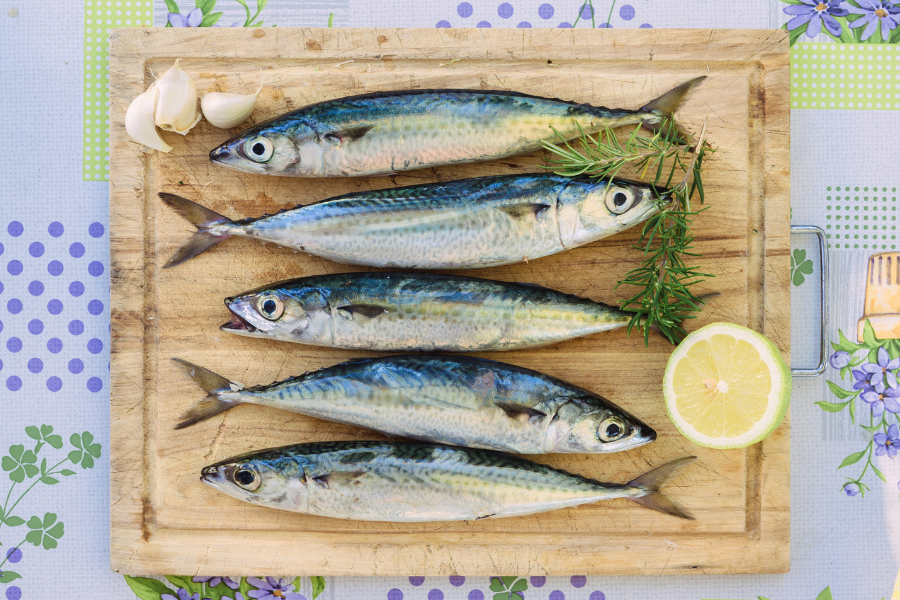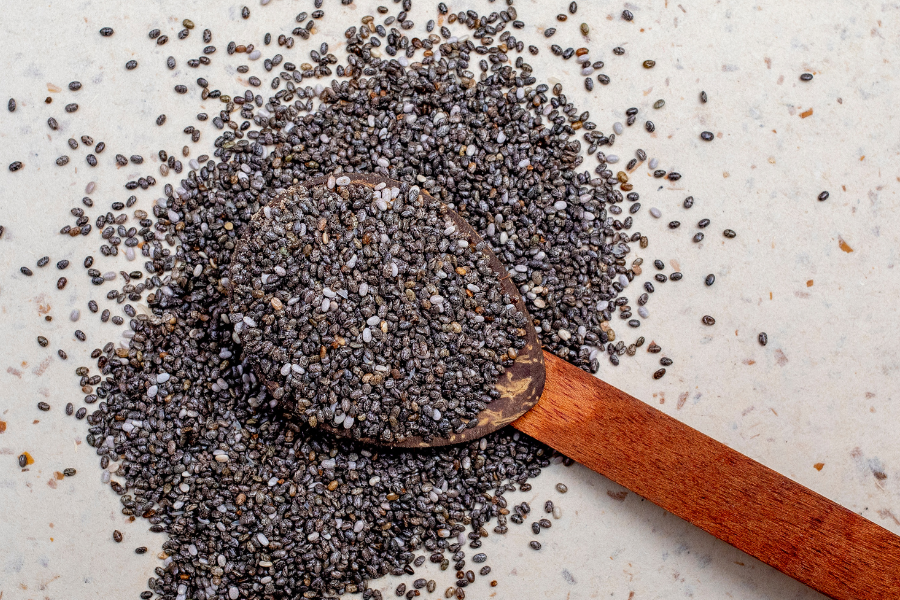Hey, fellow dog fanatics! Just like you, I'm always hunting for the best and yummiest snacks for my pooch. But, before adding new stuff into my pup's meal, I always dig a little into what those foods are. A top question that usually pops up (pun totally meant) is, can dogs have mackerel? I mean, we humans love a good piece of mackerel, but can our fur babies enjoy it safely? Let's jump into the vast ocean of dog nutrition to figure it out!
Why Mackerel?
Why the big fuss about Mackerel, you wonder? Well, mackerel is bursting with omega-3 fatty acids, which are a must-have for keeping your dog's fur gleaming, skin thriving, and heart beating like a perfect timepiece. This fatty goodness also has anti-inflammatory benefits that can help your dog if they have joint problems or arthritis. And, don't forget, mackerel is rich in protein, which is super important for building and repairing your dog’s body tissues.
But Wait, There's More!
Hey, so let me tell you why mackerel is not just about omega-3s and protein. This fish is a real gold mine of nutrients! It's packed with vitamins like B12, D, and E, and not to forget minerals such as selenium, phosphorus, and magnesium. So, why does this matter, you ask? Well, B12 keeps your nerve and blood cells healthy and helps in making DNA. Vitamin D is your sunshine vitamin that keeps your bones strong. Vitamin E is an amazing antioxidant that protects your cells from damage. Selenium is like your immune system's best friend, while phosphorus and magnesium team up for stronger bones and better nerve function. Mackerel really is your one stop shop for health
What are Omega-3s Exactly?
Alright, so let's break it down a bit. Omega-3 fatty acids are a type of fat that's absolutely essential for dogs (and humans too, for that matter!). They're called "omega-3" because of the specific structure of their carbon chain—without going full-on chemistry nerd on you, it all comes down to where the first double bond appears in the chain of carbon atoms. This cool structure allows them to provide tons of health benefits, like those we've talked about—think shiny coats, brain health boosts, and reducing inflammation. Unlike some fats that are naughty for the body, omega-3s are like little superheroes doing good for both you and your furry friend's health!
Can Dogs Eat Mackerel?
The answer is yes, your dude or dudette can totally enjoy some mackerel. But remember, just like those delicious donuts we humans can't resist, moderation is important. Mackerel should be an every-now-and-then snack, not a daily dish—overdoing it could put your pooch in a pickle health-wise.
A Word about Mercury
Now there's a teensy bit of a "let's be careful" note to add here. You know how some fish can be high in mercury? Well, mackerel can be, too. Particularly the king mackerel—consider that one the Bad Boy of the sea. Best to avoid that fella. Stick to the smaller types of mackerel like Atlantic or Pacific—they're safer and have less mercury.
What About Bones?
So, when I'm dishing up some mackerel for my pooch, I ensure it's bone-free. You know those tiny, breakable, fish bones? Yeah, they're a legit choking threat. Not to mention, if swallowed, they could hurt your pup from the inside. So, you can grab boneless fillets or simply play surgeon and remove the bones yourself. Oh, and remember, always toss that mackerel on the grill or in the oven to kill any parasitic party crashers or bacteria that could be lurking in the raw fish.
How to Serve Mackerel to Your Dog
Hey there, ready to sail the ocean with your furry friend? Let's dive right into some fab ways to jazz up your dog's meals with mackerel!
Mackerel Meal Topper
Ever thought of sprinkling some cooked, boneless mackerel over your dog's chow? Trust me, it's a protein-packed way to get those fussy eaters drooling!
Mackerel Treats
Time to put on your chef's hat! Mash up some mackerel, throw in whole wheat flour and eggs to form a dough. Cut 'em up into small pieces and bake for 15-20 minutes. And there you have it - yummy fishy nibbles right from your kitchen!
Mackerel Smoothie
Blend some mackerel, a bit of plain yogurt and a splash of water. Transform them into ice cubes for an uber-cool summer slurpy!
Stuffed Kong
Mix mackerel with sweet potato mash and stuff it into a Kong toy. Pop it in the freezer overnight for the perfect brain-teasing, delightful snack!
Benefits of Mackerel for Dogs
Adding mackerel to your dog’s diet can offer a whole host of benefits, including:
-
Super Shiny Fur! Those omega-3s will make your dog's coat glisten like rays of the morning sun.
- Bye-bye Aching Joints: Say hello to the anti-inflammatory goodness that can cushion your dog's achy joints.
- Brain Power Boost: Omega-3s pump up their brain function. This is super crucial for our senior doggies.
- Mighty Immunity: Power-packed vitamins and minerals team up to keep your furry friend fit and ready for all the fun and mischief!
Cautions and Considerations
Just giving you a wee heads up here. Adding mackerel to your four-legged friend's dinner bowl can be a big hit but remember:
Don't go overboard!
A little goes a long way. Too much of this tasty treat might upset their tummy or mess up their nutrient balance.
Check for allergies.
The first time you serve up mackerel, keep it bite-sized to make sure your pooch doesn't have any allergic reactions.
Lastly, not all mackerel are created equal.
Stick with the low-mercury variety - think Atlantic or Pacific mackerel. That's the good stuff!
Is Mackerel or Sardines Better for Dogs?
So, you're standing in the canned fish aisle, staring at mackerel and sardines, and wondering which one would make a better treat for your furry companion. Both fish are excellent sources of omega-3 fatty acids, protein, and essential nutrients, but there are a few differences to consider. Sardines are generally lower in mercury than mackerel, making them a safer option for regular feeding. They also come with bones that are small and soft enough to be eaten, providing a good source of calcium for your pup. On the other hand, mackerel offers a richer taste and slightly higher fat content, which some dogs might prefer. Ultimately, the choice between mackerel and sardines boils down to personal preference for your dog and ensuring you serve the chosen fish in moderation, aiming for variety rather than sticking to just one type.
Reel It In
Incorporating mackerel into your dog's diet can be a delightful way to boost their nutrition. Just remember to select the right kind, prepare it properly, and make sure to serve it in moderation. Your pup will thank you with a wagging tail and a happy belly! 🐾
Now that you're all clued up on this fishy business, how about treating your furry friend to a taste test? Don't be shy to spill the beans on your results and any fishy recipes you've tried in the comments below! And remember to stick around for more of our tips and tricks to keep your Best Fur-iend in tip-top shape. 🐶
Happy chow time! And just one more thing - may your home always smell more of fresh coffee than fish!
References
1) Roush JK, Dodd CE, Fritsch DA, Allen TA, Jewell DE, Schoenherr WD, Richardson DC, Leventhal PS, Hahn KA. Multicenter veterinary practice assessment of the effects of omega-3 fatty acids on osteoarthritis in dogs. J Am Vet Med Assoc. 2010 Jan 1;236(1):59-66. doi: 10.2460/javma.236.1.59. Erratum in: J Am Vet Med Assoc. 2010 Jun 1;236(11):1191. PMID: 20043800.



